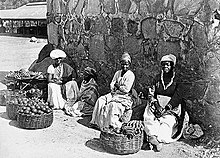
Post-abolition is the period of Brazilian history immediately following the abolition of slavery in 1888. Defined as a major break in the system practiced until then, the period triggered significant changes in the Brazilian economy and society, which depended largely on slave labor. For the freedmen, in many ways their situation worsened. The government did not organize any program for their integration into society, and they were left to their own devices. The dominant white society remained steeped in racism and discrimination manifested itself at all levels. The vast majority of freedmen remained marginalized and deprived of access to health, education, vocational training, and the exercise of citizenship. Many lost their jobs and their homes and were forced to migrate in search of new jobs, which generally proved to be precarious and difficult. Misery became commonplace. The post-abolition period was the beginning of a long process of struggle by blacks for rights, dignity, recognition, and inclusion, which to this day is still unfinished.[1][2] The abolition freed about 700,000 slaves in 1888. At that moment most of the black and brown people in Brazil were already free. According to the 1872 census (the only one to take place in the imperial period), the slave population represented 15.24% of the total population of Brazil, while black and brown people in general represented 58% of that total.[3]
- ^ Rios, Ana Maria; Mattos, Hebe Maria (2004). "O pós-abolição como problema histórico: balanços e perspectivas". Topoi (Rio de Janeiro) (in Portuguese). 5 (8): 170–198. doi:10.1590/2237-101X005008005. ISSN 1518-3319.
- ^ Maia, Beatriz (2018-05-14). "Cinco visões sobre os 130 anos da abolição". Unicamp (in Brazilian Portuguese).
- ^ Souza, Daiane. "População escrava do Brasil é detalhada em Censo de 1872". Fundação Cultural Palmares (in Brazilian Portuguese). Retrieved 2021-12-11.